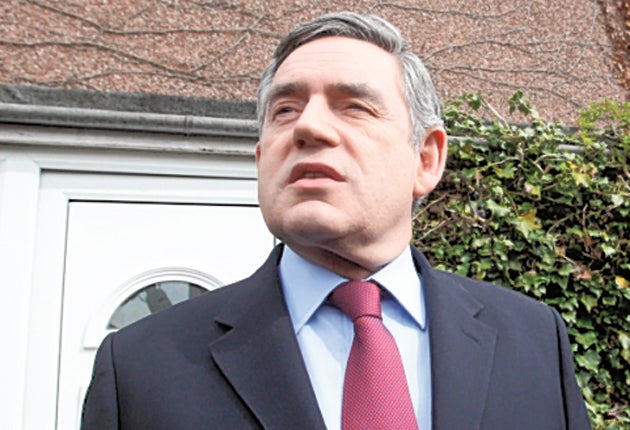The Week In Radio: It's hard work when you're in the thick of it

When a public figure dies, the whole of his life flashes before other people's eyes. So hours after the Prime Minister's post-dated political demise, a kneejerk appreciation called Gordon Brown: a Political Life was rushed on to Radio 4. Yet although Shaun Ley's programme contained a perfectly comprehensive checklist of all the delights of Brown's years in office – Bigotgate, psychological flaws, Forces of Hell, moral compass, smile – it had a perfunctory air that suggested now was not the best time to take the measure of the man. And that is the problem with living in interesting times. Achieving perspective from the middle of a political avalanche is a challenge and the Today programme has coped better than most. Unlike the TV studios, where captive politicians can sit for hours repeating formulas on a loop, Today's presenters have been far sharper than their televisual equivalents. When Paddy Ashdown came on with a lofty peroration about how he could not possibly reveal his own position, Nick Robinson was as cutting as a kitchen knife. "We can hear what you're saying, Paddy, and so can the rest of the country."
Yet even from a distance of 350 years, it's hard to achieve a perspective that is not coloured by contemporary events. Philosophically it's probably impossible anyway, but Radio 4's look back at the Restoration of Charles II did seem to have "lessons from history" written all over it. There was public discontent with weak Parliaments and after an era of chaos involving five changes of government, the people craved something lasting. Step forward Charles II, with a deal in the form of the Declaration of Breda, giving everyone the reassurances on religion and government that they needed. By dressing the Restoration in contemporary packaging, with an election-night thrill from Peter Snow, the idea was to present the drama in terms everyone understands. And it did work wonderfully well. Roving reporters were on standby in Breda and the Midlands, and Jenny Uglow was in Deal portraying the fleet crossing the North Sea to bring Charles home. The ship that was to repatriate the king was called the Naseby and had the figure of Cromwell on the prow, but by the time it reached the Netherlands, Cromwell had been hacked off and the ship was renamed The Royal Charles. That's politics for you.
Fast forward another hundred or so years and democracy had a whole new weapon in the form of satire. Gillray's cartoons of George III were the earliest examples of an art form that seems to have a special appeal to the British according to Roger Law, whose programme Satire, the Great British Tradition, trawled through highlights from Peter Cook's Establishment Club in the 1960s to Private Eye and Spitting Image.
Once satire actually hurt. The newspaper cartoonist David Low was on Hitler's hit list for execution on account of his unflattering depiction of the leader. But now Law believes the era of cartoon satire may be over, with very few young cartoonists coming up through the ranks and satire shifting to TV and film. Even there, the sting of shows like Spitting Image and The Thick of It is blunted when politicians start to feel outraged if they get left out. Ultimately, this was a depressing thesis for anyone who values the corrective of laughter, though Roger Law did point out that most satirists were never really motivated by idealism. "Gillray didn't want to reform politics or culture, he was just on the make."
One of Peter Cook's most famous skits in the Establishment Club was a mockery of Iain Macleod, the Conservative minister, which had him saying: "Elections are a most unreliable means of establishing a government's popularity. We need to get away from all this voting business which is so hit and miss." It was satire then. It's probably policy now.
Join our commenting forum
Join thought-provoking conversations, follow other Independent readers and see their replies
Comments